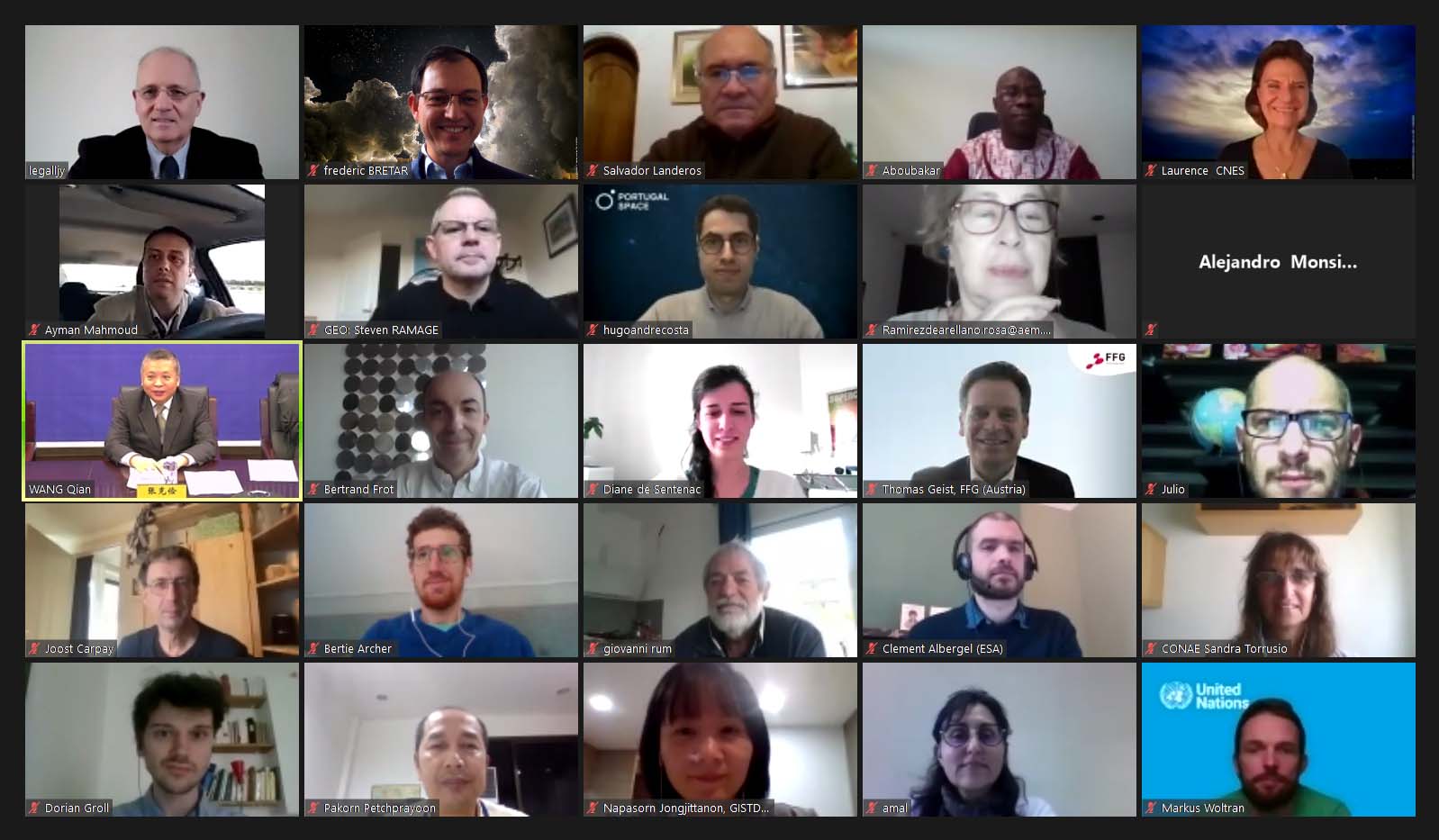5th Steering Committee meeting: certification and International Charter
Opening remarks and good news
First, CNSA Administrator Kejian Zhang confirmed China’s commitment to achieving carbon neutrality by 2060 and pointed out the launch of several Earth observation satellites. Jean-Yves Le Gall, President of CNES, then welcomed the representatives of Egypt, Morocco, Russia and UNEP (United Nations Environment Program), future members of the SCO community. He also confirmed the integration of the SCO into the community activities of the GEO (Group on Earth Observations.

SCO mobilization is very concrete with 44 simultaneous connections.
Successful calls for projects
Having expressed thanks for the multiple webinars offered in support of the candidates (China, Ethiopia, France, Italy, Mexico), the results were announced: SCO International collected 38 projects and SCO France collected 34. In total, more than 20 of them will soon be certified.
However, other candidates are expected to receive certification at a later stage. To help the other projects mature, the General Secretariat has proposed the creation of SCO Acceleration Committees, or SACs. Considered a prefiguration of the national/local SCOs and led by the corresponding signatory countries or those in the process of signing, these SACs will focus on helping projects incorporate the SCO criteria in order to join the 2021 group.
For the record, the 2020 group is currently developing more than fifteen operational solutions to meet the challenges of flooding, air quality, agriculture and much more, for territories around the world.
The SCO International Charter
Having studied 22 existing international and regional environmental structures in terms of history, objectives, actions, legal forms, governance and financing, the survey conducted prior to the drafting of the SCO Charter suggests the following guidelines:
- Define the role of the SCO, and in particular what it does differently from existing organisations;
- Ensure equal involvement of each party, mutual transparency and accountability;
- Develop an appropriate governance model, involving well-structured organisations involved at the national (end users) and international (advisory bodies to be determined) levels and, in essence, effective international coordination;
- Develop a comprehensive capacity-building policy to support emerging projects and disseminate knowledge;
- Explore available funding, with the understanding that SCO International is not a funding agency in itself but that international and national agencies play a role in leveraging funding.
Four short steps should allow the Charter to be signed in November 2021 at COP26 in Glasgow, in the UK. See the calendar!

Zoom on this exceptional Sentinel-2 image of Poyang Lake. Halfway up the Yangtze River, it constitutes an area of natural and fossil resources, part of which is classified as a nature reserve. ©Copernicus Sentinel data 2020



